
Alation
Founded Year
2012Stage
Unattributed VC | AliveTotal Raised
$331.3MMosaic Score The Mosaic Score is an algorithm that measures the overall financial health and market potential of private companies.
-18 points in the past 30 days
About Alation
Alation operates within the artificial intelligence (AI) and data management sectors. The company offers a platform that provides self-service analytics, data governance, and supports cloud transformation and AI-ready data. Alation's services aim to assist organizations in managing their data and AI initiatives, ensuring compliance and modernizing data infrastructure. It was founded in 2012 and is based in Redwood City, California.
Loading...
ESPs containing Alation
The ESP matrix leverages data and analyst insight to identify and rank leading companies in a given technology landscape.
The metadata management market offers solutions that enable businesses to collect, organize, and maintain their metadata, i.e., structured information that describes and explains data assets. In addition to their metadata management offerings, companies in this market typically also offer data governance & privacy, data lineage, and data curation. The market enables firms to connect and visualize …
Alation named as Outperformer among 15 other companies, including Snowflake, Oracle, and Databricks.
Loading...
Research containing Alation
Get data-driven expert analysis from the CB Insights Intelligence Unit.
CB Insights Intelligence Analysts have mentioned Alation in 7 CB Insights research briefs, most recently on Feb 25, 2025.
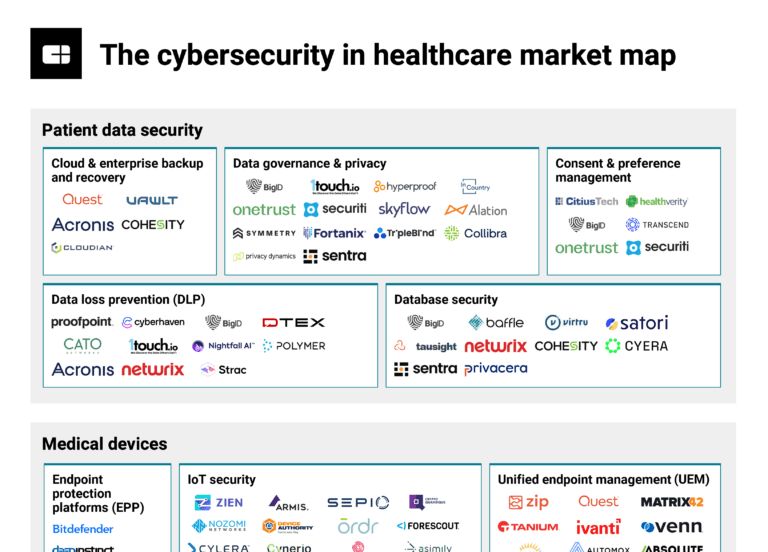
Feb 25, 2025
The cybersecurity in healthcare market map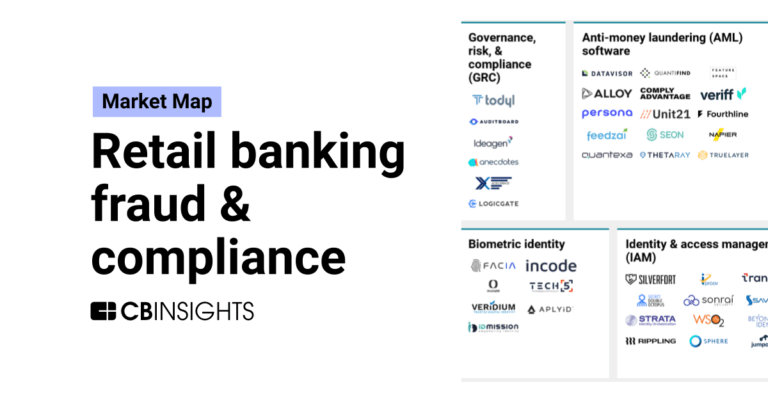
Mar 14, 2024
The retail banking fraud & compliance market map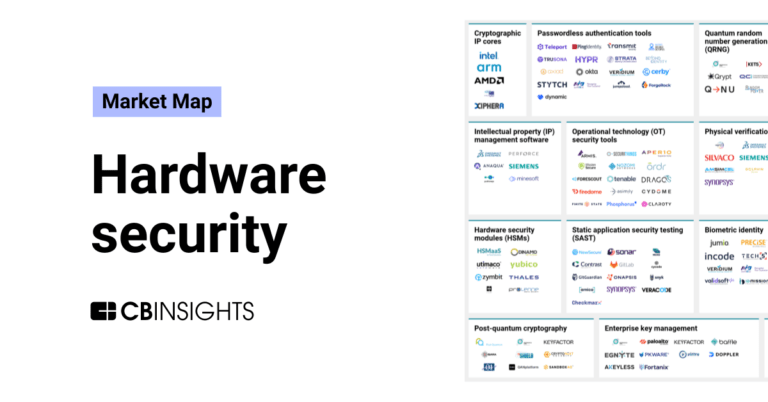
Feb 20, 2024
The hardware security market map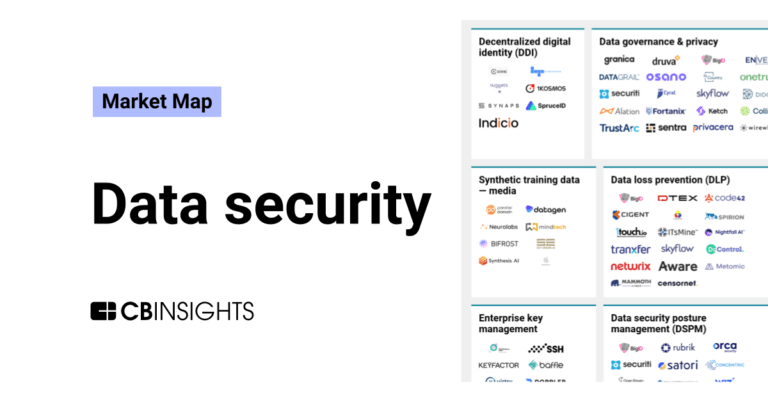
Sep 6, 2023
The data security market map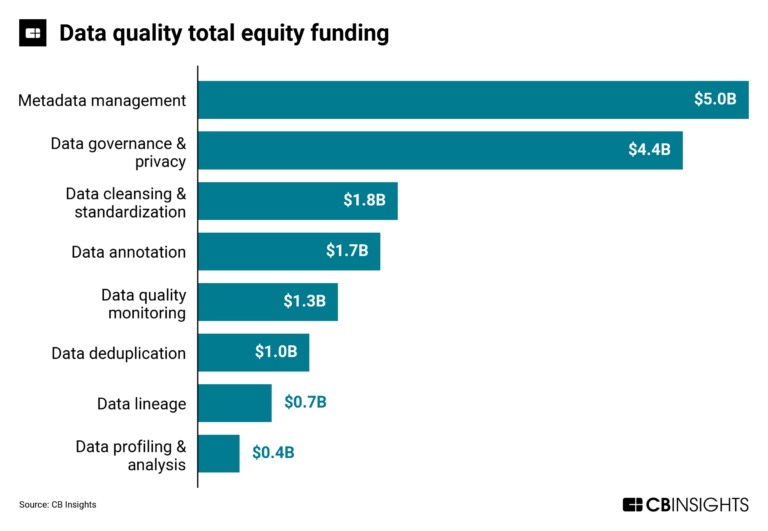
Jul 31, 2023
The data quality market map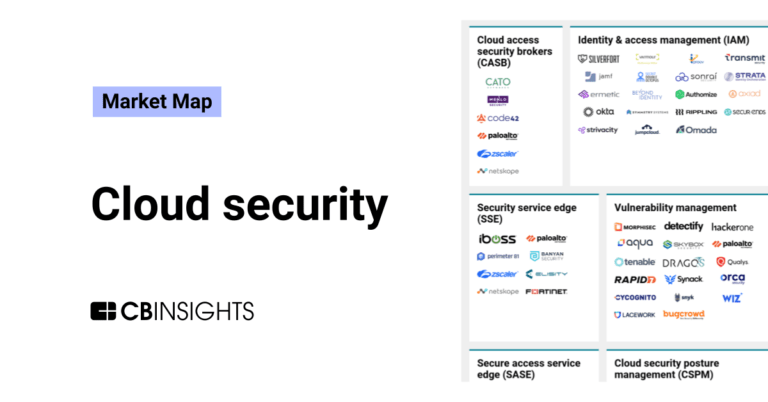
Jul 28, 2023
The cloud security market mapExpert Collections containing Alation
Expert Collections are analyst-curated lists that highlight the companies you need to know in the most important technology spaces.
Alation is included in 5 Expert Collections, including Unicorns- Billion Dollar Startups.
Unicorns- Billion Dollar Startups
1,270 items
Regtech
1,453 items
Technology that addresses regulatory challenges and facilitates the delivery of compliance requirements. Regulatory technology helps companies and regulators address challenges ranging from compliance (e.g. AML/KYC) automation and improved risk management.
Market Research & Consumer Insights
734 items
This collection is comprised of companies using tech to better identify emerging trends and improve product development. It also includes companies helping brands and retailers conduct market research to learn about target shoppers, like their preferences, habits, and behaviors.
Cybersecurity
199 items
Artificial Intelligence
7,632 items
Alation Patents
Alation has filed 10 patents.
The 3 most popular patent topics include:
- computational linguistics
- natural language processing
- tasks of natural language processing

Application Date | Grant Date | Title | Related Topics | Status |
|---|---|---|---|---|
6/10/2021 | 6/18/2024 | Natural language processing, Computational linguistics, Database management systems, SQL, Tasks of natural language processing | Grant |
Application Date | 6/10/2021 |
|---|---|
Grant Date | 6/18/2024 |
Title | |
Related Topics | Natural language processing, Computational linguistics, Database management systems, SQL, Tasks of natural language processing |
Status | Grant |
Latest Alation News
Apr 8, 2025
How does Alation leverage metadata to enhance decision-making and governance? Alation leverages metadata as a powerful lens to drive smarter decision-making and stronger data governance. By capturing how and where data is used, the processes it supports, and the context around its usage, Alation helps organizations make informed choices about how to govern and manage their data. For example, we use metadata to surface high-impact data assets—those most frequently used or supporting critical business processes—so teams can prioritize governance efforts and apply the right data quality checks where they matter most. This same metadata also enhances trust in decision-making: users consuming dashboards or reports can be alerted to upstream data issues or changes, ensuring transparency and confidence in the insights they rely on. AI is transforming how we interact with data. What role does AI play in the future of metadata management and data governance? AI is set to play a pivotal role in the future of metadata management and data governance by driving automation, improving accuracy, and aligning data practices with business goals. Here’s how: Creating High-Quality Metadata: AI can automatically discover, classify, and tag data across systems, drastically reducing manual effort and inconsistency. By leveraging natural language processing and machine learning, AI ensures metadata is more complete, accurate, and contextually relevant—laying a strong foundation for data discovery, lineage, and compliance. Orchestrating Governance Processes for Business Outcomes: Beyond metadata, AI can help orchestrate governance workflows—such as policy enforcement, data quality checks, and access controls—based on business context and usage patterns. This enables organizations to dynamically align data practices with strategic goals, ensuring that governance is not just about control, but about enabling trusted, value-driven decision-making. Feeding on High-Fidelity Governed Data Products: AI thrives on high-quality, well-governed data. As organizations mature their data governance programs and produce trusted data products, AI models can consume this data with greater confidence. This creates a positive feedback loop: better data enables smarter AI, and smarter AI improves governance and metadata quality. In short, AI will not only enhance how metadata is managed, it will become a core enabler of intelligent, adaptive, and outcome-driven data governance. What’s a trend in data intelligence that’s being underestimated right now? What should organizations be paying more attention to? A highly underestimated trend in data intelligence right now is the real implementation of well-structured, governed data products—not just the buzzword versions that surged in popularity and then faded or were watered down in execution. Over the past few years, “data products” has become a hot topic, often tied to data mesh and domain ownership. But in many organizations, the hype didn’t translate into meaningful, scalable implementations. Instead, what emerged were loosely defined collections of datasets with minimal governance, poor metadata, limited reusability, and unclear ownership—hardly the kind of foundation needed to support enterprise-scale AI. As AI adoption accelerates, this oversight is becoming a critical gap. While humans can navigate the nuance of schema quirks and interpret messy data relationships, AI systems can’t. AI requires high-quality, self-describing, governed data products—with clear semantics, strong metadata, data quality assurances, and business context baked in. These are not “nice to haves”; they are prerequisites for AI to deliver trustworthy, explainable, and repeatable results at scale. Organizations should pay much closer attention to the structure and maturity of their data products—not just in name, but in practice. Those who’ve treated data products as foundational building blocks, with strong metadata, ownership, and governance, will be in a prime position to unlock real AI value. Those who haven’t may soon realize their AI ambitions are being held back by the very data infrastructure they thought was “good enough.” For CIOs and CDOs trying to future-proof their data strategies, one key takeaway is this: When building data products and governance processes, design not just for today’s business needs, but for tomorrow’s AI-driven landscape. That means ensuring your data assets are not only trusted, high-quality, and aligned to current use cases, but also interoperable, well-documented, and machine-actionable. Business users need immediate value, but AI needs structured, standardized, and scalable foundations. If your data products aren’t built with that dual lens—serving both human understanding and future machine consumption—you risk creating technical debt that could stall AI adoption when it matters most. The organizations that win in the AI era will be those whose data strategies are built for both usability and adaptability Before we wrap up, share any upcoming innovations or big moves on the horizon at Alation. At Alation, we’re building on our agentic data intelligence platform vision with several exciting innovations on the horizon. We’re developing purpose-driven data management agents that guide and automate end-to-end workflows, helping customers achieve measurable business impact. We’re also enhancing our core platform to improve interoperability—ensuring agents have the access they need to read, interact with, and take action across the catalog experience. In addition, we’re focused on delivering high-quality, consistent data and metadata from the catalog into downstream processes, supporting critical strategic and regulatory initiatives. Finally, we’re continuing to scale our data quality capabilities to enrich both the catalog and broader agentic use cases to ensure the right context on data is available at all times. [To share your insights with us as part of editorial or sponsored content, please write to psen@itechseries.com ]
Alation Frequently Asked Questions (FAQ)
When was Alation founded?
Alation was founded in 2012.
Where is Alation's headquarters?
Alation's headquarters is located at 3 Lagoon Drive, Redwood City.
What is Alation's latest funding round?
Alation's latest funding round is Unattributed VC.
How much did Alation raise?
Alation raised a total of $331.3M.
Who are the investors of Alation?
Investors of Alation include NTT DoCoMo Ventures, Costanoa Ventures, Icon Ventures, Salesforce Ventures, Sapphire Ventures and 20 more.
Who are Alation's competitors?
Competitors of Alation include Octopai, Tamr, Talend, Dataiku, Alteryx and 7 more.
Loading...
Compare Alation to Competitors

Precisely specializes in data integrity, providing accuracy and consistency in data for customers. It offers customer engagement, data enrichment, data integrity, data integration, data governance, data quality, location intelligence, data management, and more. It was formerly known as Syncsort. The company was founded in 1968 and is based in Burlington, Massachusetts.
RNV Analytics provides artificial intelligence solutions for the retail sector, focusing on inventory optimization. The company offers a platform that uses AI and machine learning to analyze data from various sales points and customer behaviors, ensuring that products are in the right place at the right time. RNV Analytics serves the retail industry with tools for demand forecasting, stock management, and supply chain planning. It was founded in 2020 and is based in Istanbul, Turkey.
InData Labs operates as a data science firm and provides artificial intelligence (AI) powered solutions. The company offers consulting and software development services such as predictive analytics, natural language processing, and computer vision. It primarily serves sectors such as electronic commerce, marketing and advertising, logistics and supply chain, gaming and entertainment, digital health, and fintech. The company was founded in 2014 and is based in Miami, Florida.

C5i is a data analytics and insights company focusing on digital transformation through artificial intelligence (AI), advanced analytics, and insights. The company offers a range of services including digital analytics, customer analytics, consumer and market insights, marketing analytics, and supply chain analytics, as well as enterprise AI solutions and AI platforms. Course5 Intelligence primarily serves sectors such as banking and financial services, consumer goods and services, life sciences, pharma, retail, technology, telecom, and media. Course5 Intelligence was formerly known as Blueocean. It was founded in 2000 and is based in Bellevue, Washington.

Agile Defense focuses on innovation in information technology and cybersecurity within the IT solutions and services sector. The company offers a range of services including cloud services, cybersecurity, data services, DevSecOps, and IT service management. Agile Defense primarily serves the federal government sector, providing IT solutions to support and advance the missions of various agencies. It was founded in 1998 and is based in Reston, Virginia.

Ataccama is a software company that provides data management solutions, focusing on data quality, master data management, and data governance across various industries. The company offers services including data discovery, data quality checks, master data consolidation, and data governance programs. Ataccama serves sectors such as banking, insurance, finance, healthcare, retail, government, life sciences, telecom, and transportation. It was founded in 2007 and is based in Toronto, Ontario.
Loading...

